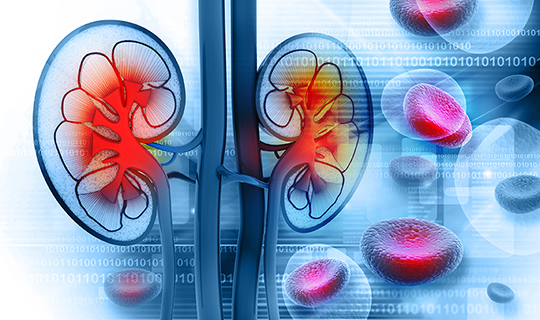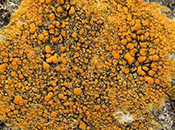If this message displays incorrectly, please view the web page

DECEMBER 10, 2015 Research Extras |
 |
||
A blood test to detect the protein suPAR could warn of future kidney disease before it causes irreparable damage. |
||
NEPHROLOGY
Simple Blood Test Could Predict Future Kidney Disease
A protein measured by a simple blood test could reliably predict a person's risk of developing chronic kidney disease months or years before the ailment begins to cause damage. High circulating blood levels of the protein suPAR could warn of future kidney disease much like cholesterol and blood pressure help predict heart disease or stroke. Currently used markers can help diagnose kidney disease but don't predict it in time to prevent negative effects. Researchers are continuing to study a test for suPAR and also its connection to cardiovascular disease. Read more...
 |
| Inflammatory proteins in the blood could be blocking brain communication and leading to one of the most challenging symptoms of depression. |
Brain's "Failure to Communicate" in Depression is Linked to Inflammation
Many people with depression have high blood levels of the inflammatory biomarker C-reactive protein (CRP). Imaging studies have found that in patients suffering from anhedonia ( the inability to experience pleasure) there is a link between CRP and a communication failure between regions of the brain important for motivation and reward. Blocking CRP or its effects could help patients respond better to antidepressants. Read more...
 |
| Statin drugs seem to reduce the ability of flu vaccines to induce immunity in older adults. |
Statin Use May Negatively Impact Effects of Flu Vaccination
Although statin drugs are widely used to reduce cholesterol, they may cause flu vaccines to be less effective in older adults. If confirmed by more research, the discovery could affect guidelines for statin use, including introducing high-dose flu vaccines or vaccines with adjuvants to boost the immune response in the elderly. Researchers will continue to study the timing of vaccines and statin use and the specific reasons for the negative interaction. Read more...
 |
| Parietin is a pigment found in Calopiaca lichens. |
Orange Lichens Are Source for Potential Anti-Cancer Drug
An orange pigment called parietin, found in lichens and rhubarb, could function as an anti-cancer drug. Winship Cancer Institute scientists found that the pigment slowed the grow of leukemia cells in the laboratory and also blocked the growth of human lung and head and neck cancer cells when grafted into mice. Read more...
Link to current issue | Archives | More Research News | Contact Us
Editor, Holly Korschun, Executive Director of Research Communications
Managing Editor, David S. Stephens, MD, Vice President for Research